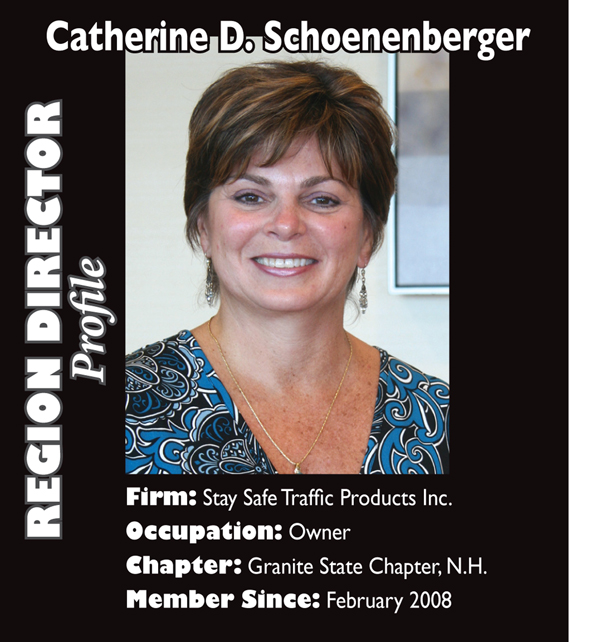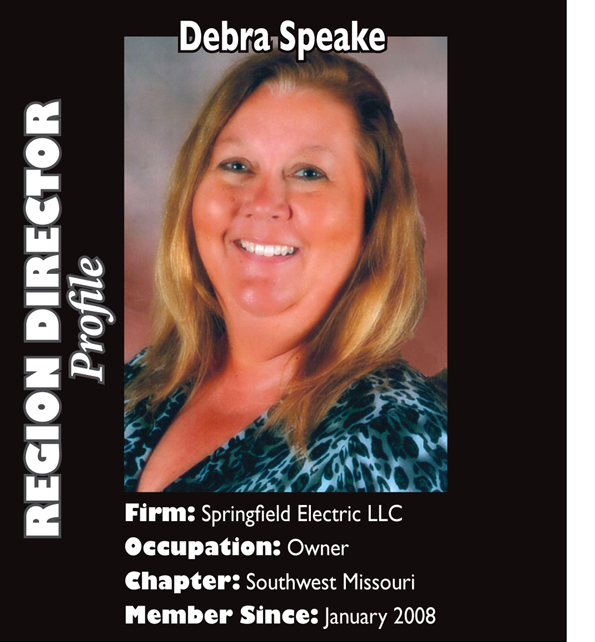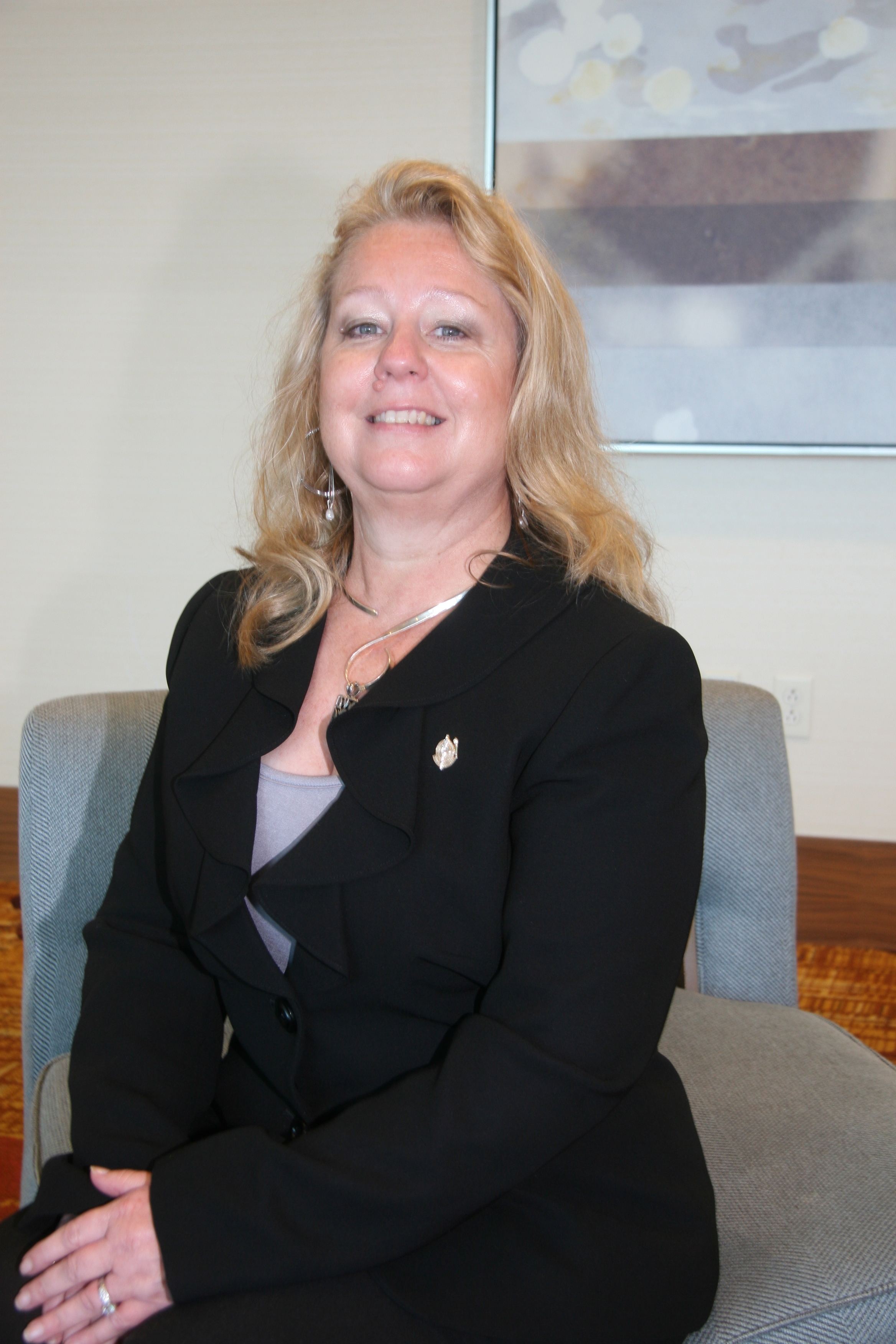Connie Leipard, president of Quality Drywall Construction.
Anything a man can do, a woman can do too, and earlier this month the National Association of Women in Construction’s (NAWIC) Women in Construction Week (WIC Week) celebrated the unique females who break the gender norms.
WIC Week, March 1-7, celebrated during Women’s History Month is also used to raise awareness for openings in all fields of construction.
Lioness Magazine had the distinct pleasure of interviewing three such remarkable women within various fields of the industry: Connie Leipard, 55, president/treasurer of Quality Drywall Construction, Columbia, Missouri; Debbie Speake, 51, owner of Springfield Electric LLC, Springfield, Missouri; and Catherine Schoenenberger, 51, president of Stay Safe Traffic Products Inc., Westford, Massachusetts.
The following are the responses from a question and answer session conducted with Leipard, Speake and Schoenenberger:
Q: What year was your company founded?
Leipard: 1978
Speake: 2011
Schoenenberger: 2002
Q: What are your job duties?
Leipard: [I] manage company finances, supervise office staff, [and act as] safety director [for] field employees.
Speake: A/R, A/P, HR, material handling, on occasion I give the crew a hand in the field.
Schoenenberger: Sales distribution of traffic signs and traffic safety components, including PPE (Personal Protection Equipment) for the work zone and construction sites; also manufacturer of custom carved signs; nationally certified trainer for flagging operations and work zone safety.
Q: What attracted you to the work in this field?
Leipard: Fast pace/income potential/interesting work.
Speake: In 1991, I originally started in the construction industry for steady work hours and benefits. I have stayed in this industry because of its diversity and it is awesome to [be] part of the community as it grows.
Schoenenberger: I answered a blind ad for “general manager” with no reference to the industry it was in.
Q: What makes your company unique in the marketplace?
Leipard: Attention to detail, quality of work.
Speake: We are a small company with a great deal of experience on our crew; therefore, we are able to be very competitive with our bids.
Schoenenberger: I am a female in a male dominated industry. I work primarily with municipalities and their DPW [Department of Public Works] crews. I am usually the only woman in the room.
 Q: Tell us about some of your specialties.
Q: Tell us about some of your specialties.
Leipard: Light gauge metal framing, drywall, acoustical ceilings, exterior insulation and systems.
Speake: We accommodate all sizes of jobs with the same eye for detail, workmanship and importance in making the best end result.
Schoenenberger: I provide a lot of added value to the products I sell to the end user. The manual on Uniform Traffic Control Devices (MUTCD), issued by Federal Highway, is the basis of much of my knowledge. The MUTCD is what the public works departments and construction companies must be in compliance with while doing any kind of construction on public roads, bridges, and highway infrastructure.
Q: As a woman working in the construction industry, did you encounter any unique experiences in establishing your business because of your gender?
Leipard: Too many to count! Women have struggled to be considered experts in construction. Especially in the early years of women making strides in the industry. One of my funny stories involved the simple chore of answering the phone and the man on the other line asked to speak to “someone who knows something.” He felt really bad and apologized after I quipped back, “Are you suggesting I don’t?” I was able to answer his question with ease and then he apologized again for his chauvinistic attitude. We both had a good laugh at stereotypes that seep into our thinking.
Speake: My gender has really never been a problem in working in this industry. I have found that working hard and integrity go a long way in this area.
Schoenenberger: In many ways it has given me an edge, in that the “guys” can recognize me at a tradeshow or expo and approach with familiarity. I am one of perhaps a handful of other women in the room. It has made them more comfortable. I have my DBE and WBE certifications for a few of the New England states. Although I have received some business as a result of that status, I haven’t been able to compete with the larger firms who are solicited for the same jobs. Being a small business owner, not so much my gender, hinders the estimating process … it’s cumbersome and time consuming.
Q: What made you decide to open your own business rather than work for someone else?
Leipard: The desire to be responsible for the quality of the work installed and the economic benefits of owning my own company.
Speake: The industry was showing definite signs of moving forward from the recession. So timing was a big part of starting my own business. Also a big part of the decision was the fact that my husband and I had worked together at the same electrical company for 10 years prior and we wanted to continue working together. We each bring different skills to the table and between the two of us we cover all the major areas needed to run a successful business.
Schoenenberger: I have always liked the autonomy of working for myself. When I answered the blind ad, I was essentially hired to run a business that no one else wanted to run, including the woman who owned it! I was at that company for nearly six years and was literally doing everything. It was when the owner’s husband had a meeting with me and told me that he thought that I should step it up because the “company wasn’t growing,” and that I should also sign a “non-compete” contract! He had nothing to do with the business – nothing. That’s when I realized it was time to break away. I did, and never looked back. They were out of business in less than six months after my departure.
 Q: If you could give advice to readers who want to break into your industry, what would it be?
Q: If you could give advice to readers who want to break into your industry, what would it be?
Leipard: Construction is highly competitive. Necessary skills include the ability to communicate well, collaborate effectively and apply technical skills in the field. To be successful in this industry requires a wide range of knowledge both in technical expertise as well as business acumen. Be willing to set your ego aside, seek good advisors and be willing to work long, hard hours are must have’s for success in construction. It’s a risky business!
Speake: I have found that being honest and having integrity are the key factors to being in this industry. Your word and reputation will go a long way towards having a successful career in this industry.
Schoenenberger: Keep your options open. Explore different jobs within your current company. Wear the different hats. When you’ve done someone else’s job, you gain a certain appreciation for the position and an understanding of what he/she is trying to accomplish. When you arrive in a management position, play volleyball with your team, figuratively anyway. Rotate them within the team so that each will experience each position and recognize its importance to winning-advancing-accomplishing-learning. This is a “hands-on” industry and most of us learn best when we transfer what we’ve done with our hands into our heads. We retain and comprehend it much better, so get your hands dirty and have fun!
The aforementioned women, along with countless others who work in construction are doing what many think is impossible: breaking through a male-dominated industry and coming out on top. Women in Construction Week is an opportunity to celebrate the continuation of breaking gender norms and seeing that women are as much an integral part of the construction industry as men.






Add Comment